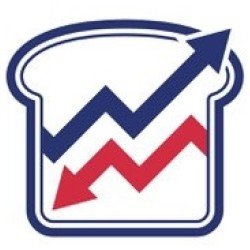Tax Day is approaching. Here’s how to file an extension and the penalties if you’re late | Des Moines Register
As the clock ticks closer to Tax Day, it’s time to ensure your financial affairs are in order, or you might find yourself navigating through late fees and penalties. According to recent data, the tax season 2024 has seen a slight dip in returns received by the Internal Revenue Service (IRS) compared to the previous year. However, there’s a silver lining for those eagerly awaiting their refunds, with the average amount showing a promising increase of 5.1% this year.
For most Americans, the looming deadline for filing taxes with the IRS is Monday, April 15. But if you’re an Iowan, you’ve got a bit more breathing room as the deadline for state taxes extends to Tuesday, April 30. And here’s a tip for those contemplating an extension: if you can pay at least 90% of your tax liability by April 30, you’ll gain an extra six months until October 31 to file your return.
If you’re considering filing for an extension, you’ve got until April 15 to do so. While living in certain disaster areas might grant you an extension without the need for a formal request, filing for an extension is straightforward and free through the IRS for most individuals. Ensure you have your basic information handy, including your estimated tax liability and Social Security number.
But what happens if you miss the tax deadline altogether? Brace yourself for potential penalties. The IRS imposes a standard 5% penalty for each month your return is overdue, up to a maximum of 25% of the unpaid balance. Remember, an extension to file does not grant an extension to pay, so it’s crucial to settle any owed taxes promptly………..![]() [read more]
[read more]
Rising Dough
 How might the fluctuations in tax return trends impact consumer spending habits and overall economic activity in the subsequent quarters?
How might the fluctuations in tax return trends impact consumer spending habits and overall economic activity in the subsequent quarters?
*Click on the “Full Loaf” icon to read the full article! After you read the full article, let us know your thoughts.
Share this content:













When people receive larger tax returns, they often have more money to spend, which can boost consumer spending. This can led to an increased demand for goods and services, which in turn can stimulate economic growth. On the other hand, if tax returns are smaller, it might reduce consumer spending, which can have a dampening effect on the economy.
Fluctuations in tax return trends impact consumer spending habits and overall economic activity by making it harder for the people who have payed more than enough of their taxes and not gotten any money back
Changes like larger tax returns can ensure taxpayers rest easy because they will be able to receive more, which means they can have more for their spendings. This directly affects the economy because that means more money will be funneled into goods and services, so it will most likely increase consumer spending after taxes are paid, compared to less being spent before taxes are paid.
Having a higher tax fluctuation in tax return will impact consumer spending habits and overall economic activity because they have more money and ability t spend on items. So the spending habits will ultimately increase along with the economic activity sense more stores and places are receiving more income with more profits.
Fluctuations in tax return trends can definitely impact consumer spending habits and overall economic activity. When people receive larger tax returns, they often have more disposable income to spend on goods and services. This can lead to increased consumer spending, which in turn stimulates economic growth. On the other hand, if tax returns are smaller or people owe money, it can reduce their disposable income and potentially lead to decreased consumer spending. This can have a dampening effect on economic activity. So, tax return trends can play a role in shaping consumer behavior and influencing the overall economy.
How might the fluctuations in tax return trends impact consumer spending habits and overall economic activity in the subsequent quarters?
The fluctuations in tax return trends can either impact consumer spending habits positively or negatively because if they get substantial amounts of money back, this will increase their spending budgets. This will boost the overall economic activity because the demand for goods and services will increase with consumer spending.